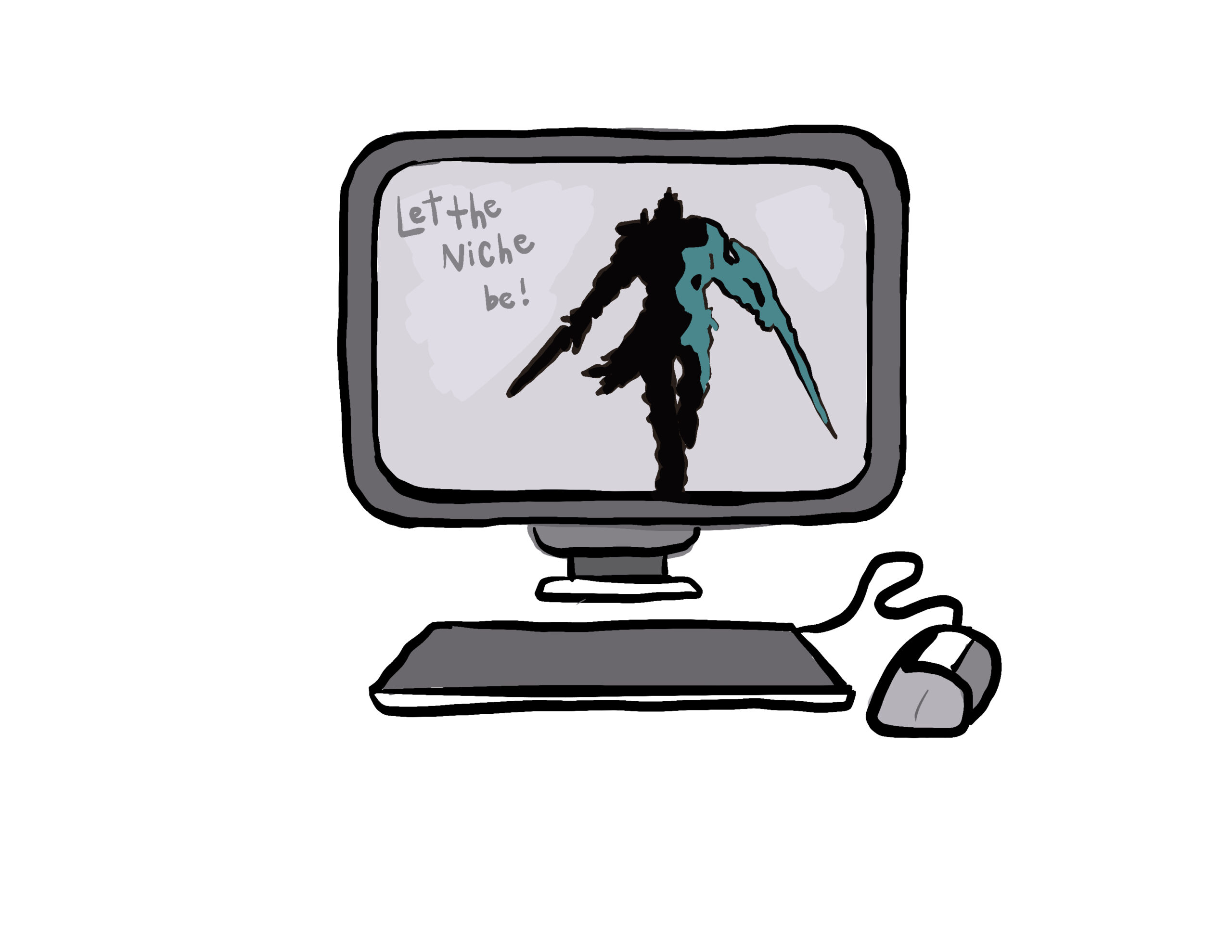The look: Can we let the niche be?
November 18, 2022
 Kate Padilla
Kate PadillaThere is a lot of discourse surrounding the accessibility of games. I am not referring to accessibility for those with physical disabilities, which is something I think games should have; I’m talking about the accessibility of a game’s aesthetic experience, the approachability of a game and the scope of its audience. Essentially, I’m looking at the appeal of a game and who it speaks to with its aesthetic experience. There exists a vocal and persuasive group of designers and companies that put approachability above all: make the game as broadly appealing as possible. This has a lot of economic benefits and some argue that it benefits the player, as they now have more games to enjoy immediately. But is this really something laudable?
I don’t think so. I think the way we talk about games is catastrophically damaged when we value broad appeal over distinct voice and vision. Consider games such as Dark Souls, which prides itself in challenging combat and its expansive, unforgiving world. Because of this, Dark Souls is often fraught with discourse surrounding its approachability. Many claim that the game is too hard and isn’t as good as it could be because it is challenging to learn and not immediately approachable, with only a few players sticking it out to the end. Or consider grand strategy games such as Europa Universalis or Crusader Kings, known for their complicated, spreadsheet-esque design that involves keeping track of several variables, modifiers and percentages to create a winning strategy. I know many who enjoy games as a hobby but can’t seem to get into either of these kinds of games. But this, I am compelled to say, is not a problem for these games.
Consider discussions of art: paintings, books, movies, etc. Suppose someone doesn’t like a particular painting, can’t seem to sit through a certain book or does not understand the message of a movie. In that case, are those paintings, books or movies failures? The consequences of this view—that art is only good if it speaks to as many people as possible—is dangerous and untenable if we want discourse to flourish. It comes harrowingly close to the idea that all art is approaching some horizon point of “good” that will eventually result in some singularity of art—the end of art, perhaps. There would be nothing left to venture, nothing left to improve, for we have discovered the pinnacle of the creative, the artistic end. This is a grim future, one that precludes the possibility of deeper articulation and bars language from being utilized with its true, multifaceted and ever-rich potential for expression. Of course, these works of art will be “successful;” they will make a great deal of money and have some pop-cultural staying power, but don’t we lose something profound by submitting to this view?
It is no different with video games. Dark Souls-like games and grand strategy games are often called niche, reaching a select few patrons who are fans of the specific gameplay they offer. These developers understand what makes them good, what makes them exciting and aesthetically unique, and so, with every iteration, they build upon these aspects without regard to whether their method and distinct artistic voice are financially tenable. Of course, the developers are interested in expanding their player base and reaching a substantial audience, but the changes they make to this end are limited by the niche. In other words, they strive for some level of approachability that is consistent with the core gameplay that they are known for. When companies sacrifice aspects of a game that are bound to its identity as a unique aesthetic product with a distinct vision, the voice of the game dies and the expression is cast aside. When we evaluate based on approachability and broad appeal, we come dangerously close to the commodification of expression and the ruination of all meaning in video games as an art form.
All this is not to say that people who can’t get into Dark Souls-like or grand strategy games are wrong or that their distaste for these genres is unfounded; rather, my claim is neutral. It is okay to not like a niche and for an individual to say, “this doesn’t speak to me.” When this happens, you pick up and move on to find the art that does speak to you. The alternative is to force the artist to make something you like or to change their work to match your tastes. This, however, is contrary to the entire project of art. It is an exercise in humility as much as an acknowledgment of one’s aesthetic sensibilities to let art be when it does not resonate with you. So let the niche be, for the sake of art. Lest we cast ourselves into a most deplorable aesthetic nihilism.

Comments
Before submitting a comment, please review our comment policy. Some key points from the policy: